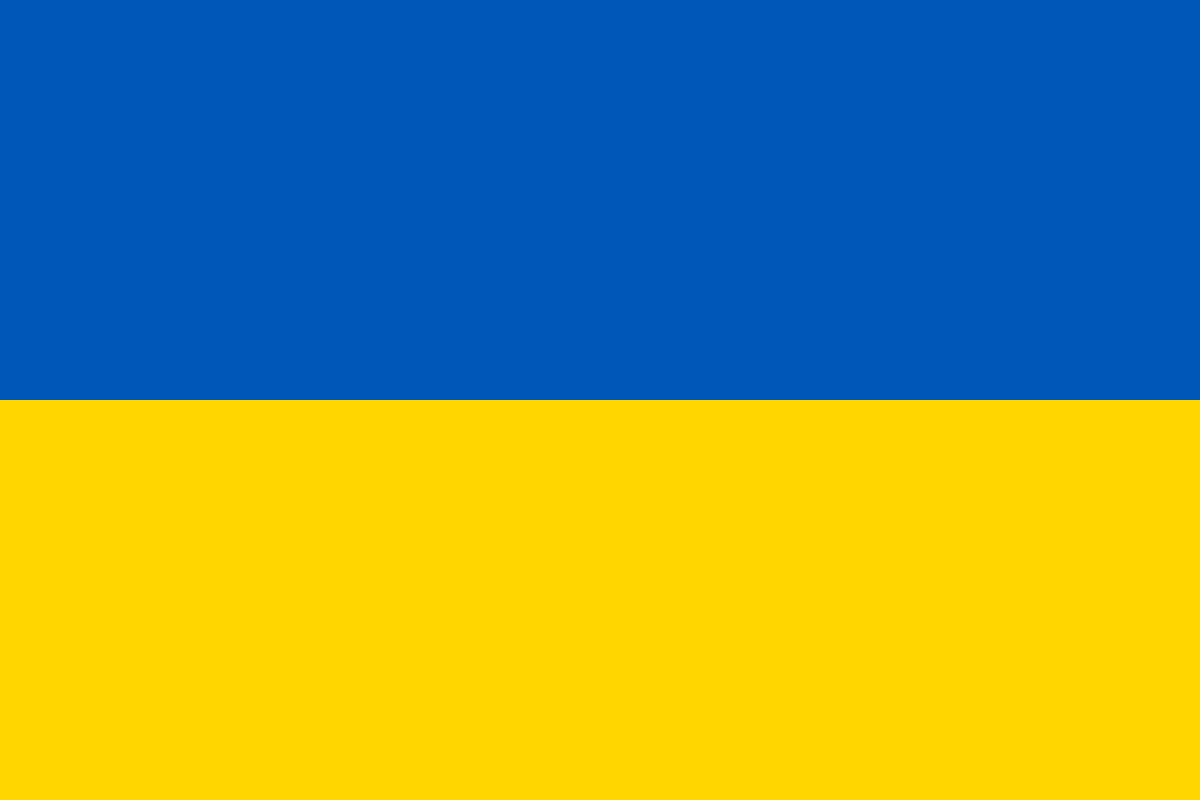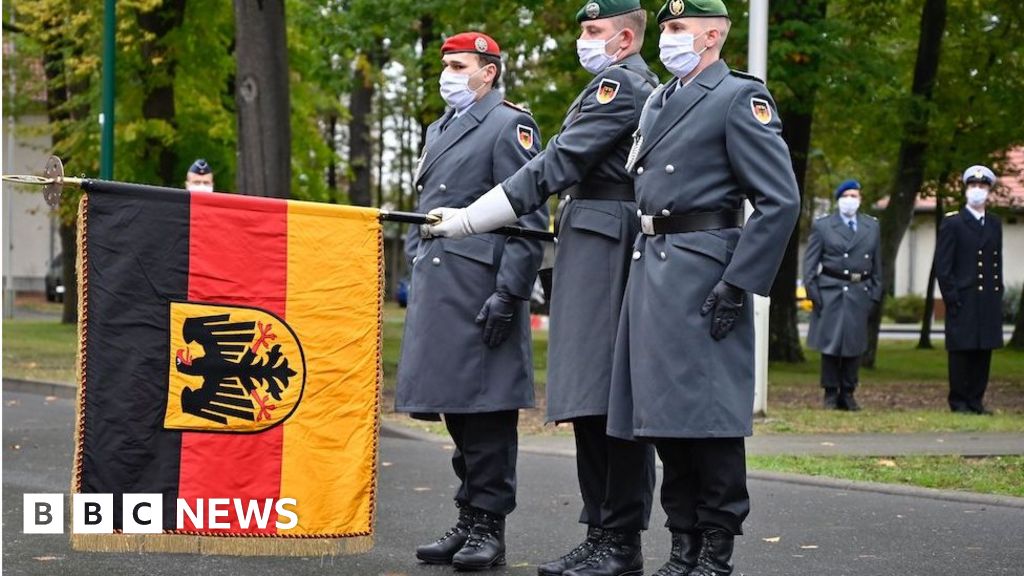You are using an out of date browser. It may not display this or other websites correctly.
You should upgrade or use an alternative browser.
You should upgrade or use an alternative browser.
The long-term fate of Ukraine in a TL where Germany wins WWI?
- Thread starter WolfBear
- Start date
More options
Who Replied?sillygoose
Well-known member
They'd be propped up by Germany:

 en.wikipedia.org
en.wikipedia.org

Ukrainian State - Wikipedia
 en.wikipedia.org
en.wikipedia.org
They'd be propped up by Germany:

Ukrainian State - Wikipedia
en.wikipedia.org
Would Germany actually have the desire to prop them up indefinitely, though?
sillygoose
Well-known member
Yes, the benefits of an independent Ukraine are far too important to pass up. Namely the access to food and denying Russia said food.Would Germany actually have the desire to prop them up indefinitely, though?
Yes, the benefits of an independent Ukraine are far too important to pass up. Namely the access to food and denying Russia said food.
I was simply wondering because nowadays Germany doesn't actually appear to be very willing to fight for Ukraine or even to send any weapons to Ukraine:

Why Germany isn't sending weapons to Ukraine
Germany's refusal to arm Ukraine has puzzled and angered some allies. Here's what's behind it.
sillygoose
Well-known member
Post-WW2 Germany is very different from pre-WW2 Germany.I was simply wondering because nowadays Germany doesn't actually appear to be very willing to fight for Ukraine or even to send any weapons to Ukraine:

Why Germany isn't sending weapons to Ukraine
Germany's refusal to arm Ukraine has puzzled and angered some allies. Here's what's behind it.www.bbc.com
Post-WW2 Germany is very different from pre-WW2 Germany.
But given that Ukrainians and Russians were both huge victims of Nazi aggression and that Russia is the current aggressor here, one would think that German sympathies right now should lie more with Ukraine, no?
raharris1973
Well-known member
But given that Ukrainians and Russians were both huge victims of Nazi aggression and that Russia is the current aggressor here, one would think that German sympathies right now should lie more with Ukraine, no?
I think the Germans takeaway from WWII is more to be the opposite of their WWII selves, switch from warmongering to peaceful. Their takeaway from WWII wasn't to be like their WWII enemies, fight but be on the "good" side, and become the military rescuer of other nations.
I think the Germans takeaway from WWII is more to be the opposite of their WWII selves, switch from warmongering to peaceful. Their takeaway from WWII wasn't to be like their WWII enemies, fight but be on the "good" side, and become the military rescuer of other nations.
One can be pro-peace and one can be pro-peace at any and all costs. If one is the latter, then isn't one just an appeaser?
raharris1973
Well-known member
One can be pro-peace and one can be pro-peace at any and all costs. If one is the latter, then isn't one just an appeaser?
That's the German takeaway of what a moral/sensible foreign policy is.
That's the German takeaway of what a moral/sensible foreign policy is.
Seems like they're following the proud tradition of 1938 Neville Chamberlain. Though to be fair, it would have benefitted interwar Germany to be more appeasing. Would have avoided the German-Polish customs war that way:

German–Polish customs war - Wikipedia
 en.wikipedia.org
en.wikipedia.org
And of course no World War II either.
sillygoose
Well-known member
Russia provided Germany with affordable oil and gas as well as independence from the US. When survival of the economy was on the line sympathy and morality go out the window.But given that Ukrainians and Russians were both huge victims of Nazi aggression and that Russia is the current aggressor here, one would think that German sympathies right now should lie more with Ukraine, no?
Of course it might also be that the US government is making up a crisis to distract from all of our internal issues and the Germans know that. It wouldn't be the first time the US has started wars for domestic interests rather than due to any real issue in the region they're picking a fight.
The customs war was due to Poland refusing fair trade with Germany and was forcing out the German minority if you read the article further down:Seems like they're following the proud tradition of 1938 Neville Chamberlain. Though to be fair, it would have benefitted interwar Germany to be more appeasing. Would have avoided the German-Polish customs war that way:

German–Polish customs war - Wikipedia
en.wikipedia.org
And of course no World War II either.
In the immediate post-World War I period, trade between both nations was regulated by the Treaty of Versailles and by the Geneva Convention on Upper Silesia (1922). The Treaty of Versailles required Germany to give most favoured nation status unilaterally to all Triple Entente countries as well as to its newly created eastern neighbors. The export of goods produced in the former territories of the German Empire now in the Second Polish Republic was generally tax-free,[12] to avoid economic collapse of the territories.[20] According to the Geneva Convention, Germany was obliged to allow export of specified quantities of coal from the Polish part of Upper Silesia. Both documents were valid until 15 June 1925.[21]
In June 1924, a new customs law was passed in Poland. Its aim was to protect the Polish market from foreign competitors and cover increased financial needs. It was supposed to serve as a basis for future trade agreements.[22] While divergent terms were settled in bilateral treaties between Poland and France, Czechoslovakia, Hungary and Greece, the taxes on other imports were raised 100%.[22]
Poland asked for renewal of the trade privileges but refused to grant most favoured nation status to German goods.[23]
So German moves were reactive, they didn't start the conflict.
Seems like a pretty simple request given that the minority wasn't getting the rights entitled to it under the Minorities Agreement that Poland had signed.In January 1925, when Germany recovered its trade policy sovereignty,[25] all purchases of Polish coal were stopped[26] and customs duties raised on all Polish-made products. Some Polish exports were subject to a German embargo.
Warsaw responded by raising tariffs on German goods. Negotiations began in Berlin on 3 March 1925. Germany demanded more privileges for the German minority in Poland as a pre-condition for resumption of the coal trade, but Warsaw refused.[24]
Last edited:
Russia provided Germany with affordable oil and gas as well as independence from the US. When survival of the economy was on the line sympathy and morality go out the window.
Of course it might also be that the US government is making up a crisis to distract from all of our internal issues and the Germans know that. It wouldn't be the first time the US has started wars for domestic interests rather than due to any real issue in the region they're picking a fight.
The customs war was due to Poland refusing fair trade with Germany and was forcing out the German minority if you read the article further down:
So German moves were reactive, they didn't start the conflict.
Seems like a pretty simple request given that the minority wasn't getting the rights entitled to it under the Minorities Agreement that Poland had signed.
Interesting. So, Germany simply wanted more minority rights for Germans in Poland? It was willing to end the customs war with Poland if it actually got that even without any territorial revision? I mean Weimar Germany, FWIW.
sillygoose
Well-known member
They wanted territorial revisions as well, but the plight of the minorities was also a major driving factor if for nothing else but public demand.Interesting. So, Germany simply wanted more minority rights for Germans in Poland? It was willing to end the customs war with Poland if it actually got that even without any territorial revision? I mean Weimar Germany, FWIW.
sillygoose
Well-known member
The Allies had effectively told Germany in 1925 that they could revise the Eastern borders with the Locarno treaty, which is probably why Poland freaked out and really started putting the screws to the German minority as they were fearful of any revision:

 en.wikipedia.org
en.wikipedia.org
The Golden Age - Recovery of Weimar - WJEC - GCSE History Revision - WJEC - BBC Bitesize
Learn and revise about the recovery of Weimar for WJEC Unit 2 Germany in Transition with BBC Bitesize.
www.bbc.co.uk
- Germany also signed arbitration treaties with Poland and Czechoslovakia renouncing the use of force and promising to refer any future disputes to an arbitration tribunal or to the Permanent Court of International Justice. (This however did not involve Germany accepting its eastern borders).

Locarno Treaties - Wikipedia
In Poland, the public humiliation received by Polish diplomats was one of the contributing factors to the fall of the Grabski cabinet. Locarno contributed to the worsening of the atmosphere between Poland and France, weakening the French-Polish alliance. Józef Beck ridiculed the treaties saying, "Germany was officially asked to attack the east, in return for peace in the west."[8] Józef Piłsudski would say that "every honest Pole spits when he hears this word [Locarno]".[9] Proposals in 1934 for an "eastern Locarno" pact securing Germany's eastern frontiers foundered on German opposition and on Poland's insistence that its eastern borders should be covered by a western guarantee of her borders. The Locarno treaty was heavily undermined by the Franco-Soviet Treaty of Mutual Assistance on 2 May 1935, which the German government claimed was a violation of its "spirit".
The Allies had effectively told Germany in 1925 that they could revise the Eastern borders with the Locarno treaty, which is probably why Poland freaked out and really started putting the screws to the German minority as they were fearful of any revision:
The Golden Age - Recovery of Weimar - WJEC - GCSE History Revision - WJEC - BBC Bitesize
Learn and revise about the recovery of Weimar for WJEC Unit 2 Germany in Transition with BBC Bitesize.www.bbc.co.uk

Locarno Treaties - Wikipedia
en.wikipedia.org
So, apparently Germany was open to pursuing territorial revision in a peaceful manner, but France's alliance with Poland would have still blocked any forcible German revision of Germany's eastern borders unless of course France would have refused to honor this alliance. And Poland would not agree to voluntary, peaceful revision of its borders.
After the Locarno Treaty, France and Poland reconfirmed their alliance:
Franco-Polish Alliance (1921) - Wikipedia
 en.wikipedia.org
en.wikipedia.org
The alliance was further extended by the Franco–Polish Warrant Agreement, signed on October 16, 1925 in Locarno, as part of the Locarno Treaties. The new treaty subscribed all previously-signed Polish–French agreements to the system of mutual pacts of the League of Nations.[5]
Users who are viewing this thread
Total: 1 (members: 0, guests: 1)
